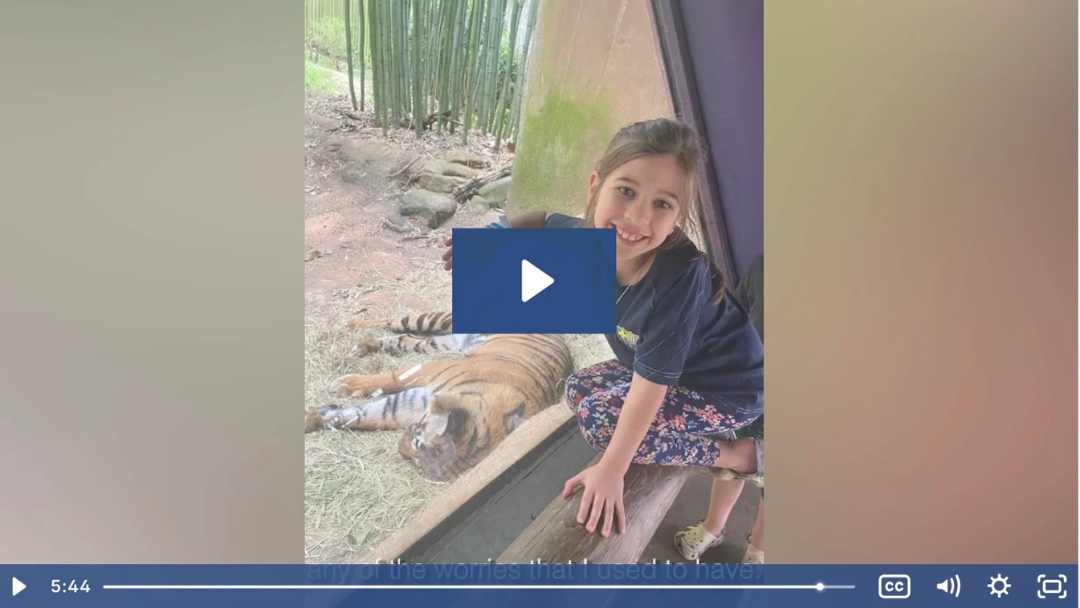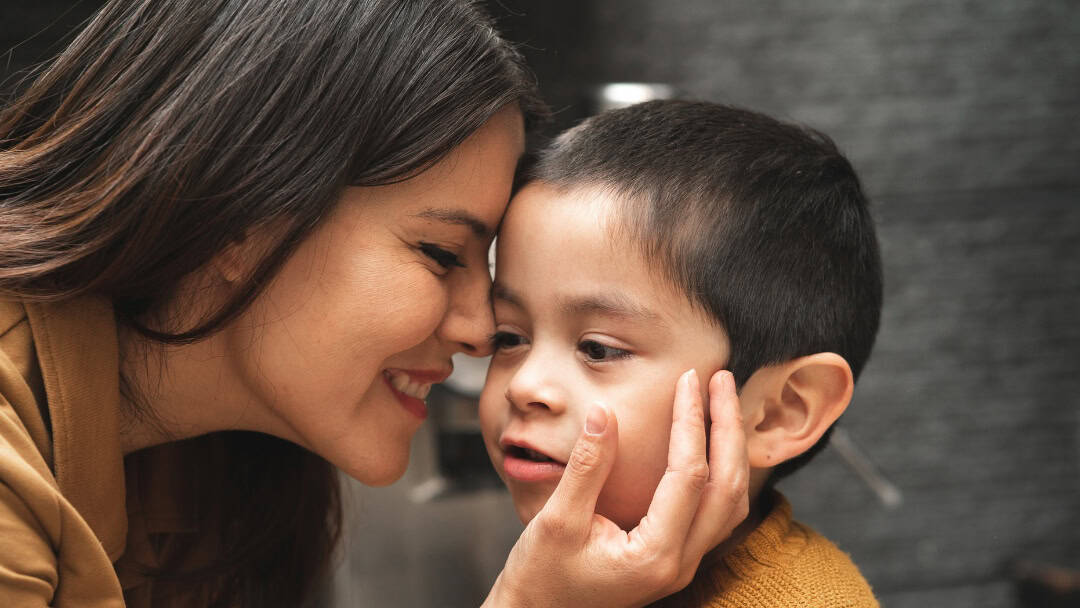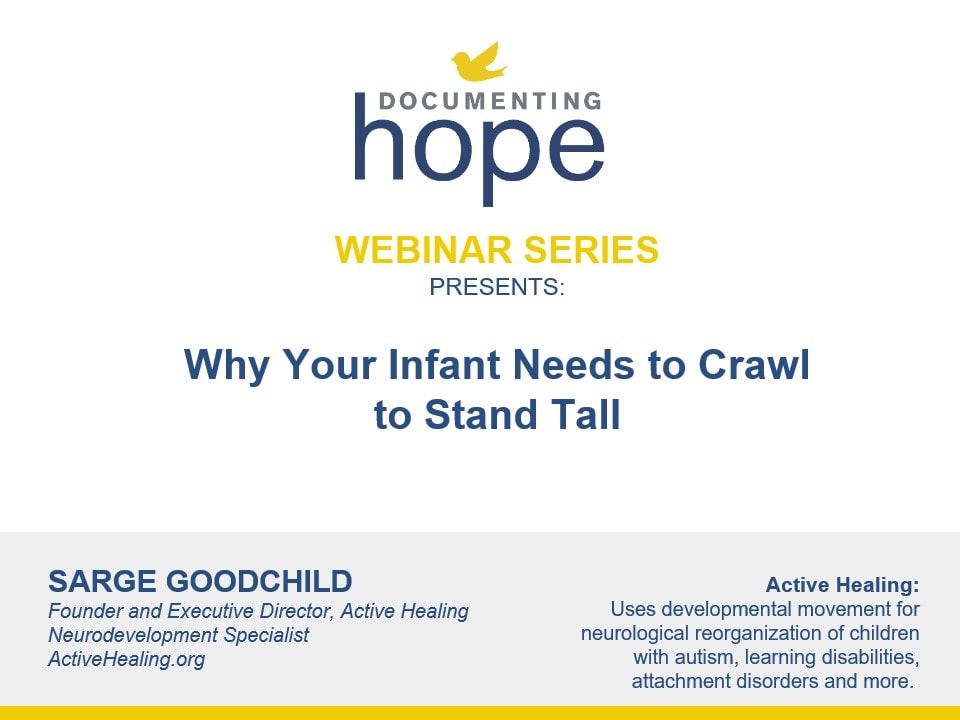We will be interviewing holistic pediatrician Larry Palevsky MD about how delayed pediatric developmental milestones are being normalized on Thursday, August 28th at 1:00pm Eastern. Sign up below to join us and ask Dr. Palevsky your own questions!
Pediatric Developmental Milestones Were Changed
The U.S. Centers for Disease Control and Prevention’s (CDC) Learn the Signs. Act Early. program, funded the American Academy of Pediatrics (AAP) to convene an expert working group to revise its developmental surveillance checklists. The working group released its findings in February 2022 in Pediatrics with its article, Evidence-Informed Milestones for Developmental Surveillance Tools.
On the surface, this article appeared to “clarify when most children can be expected to reach a milestone (to discourage a wait-and-see approach)”. However, on further inspection, the CDC and AAP have further pushed back or even completely dropped what were once considered normal milestones such as crawling or speaking 50 words by the age of 24 months. The effect of this is to not only normalize developmental delays that were once seen by pediatricians as red flags of a child’s development but also to delay the time to intervention for these children.
Children with developmental delays are much more likely to be diagnosed with hypotonia, autism, ADHD, Sensory Processing Disorder, learning disabilities, dyspraxia/apraxia, and/or speech and language challenges. Please read our article Developmental Delays Main Info Page about how to address developmental delays with a holistic approach, especially if your child has regressed into a neurodevelopmental disorder.
In This Webinar
In this webinar, Dr. Palevsky will help us to answer the following questions:
- What are common red flags in a child’s developmental milestones?
- Has there been an increase in developmental delays among children even before this CDC/AAP guidance change? If so, what are potential root causes?
- Does this change lower standards for these milestones? If so, does this change in CDC and pediatric guidelines normalize developmental delays?
- What are examples of this guidance change in regards to developmental milestones?
- What can parents, caregivers and physicians do about this change in guidance?
Join us to ask Dr. Palevsky your own questions in this live webinar! If you can’t make it for the live call, sign up to get the replay delivered to your email the next day.
Disclaimer
This webinar is not a substitute for medical advice, treatment, diagnosis, or consultation with a medical professional. It is intended for general informational purposes only and should not be relied on to make determinations related to treatment of a medical condition. Documenting Hope has not verified and does not guaranty the accuracy of the information provided in this webinar.
About Larry Palevsky MD
Dr. Palevsky is a New York state licensed pediatrician who utilizes a holistic approach to children’s wellness and illness. Dr. Palevsky received his medical degree from the NYU School of Medicine in 1987, completed a three-year pediatric residency at The Mount Sinai Hospital in NYC in 1990, and served as a pediatric fellow in the ambulatory care out-patient department at Bellevue Hospital in New York City from 1990-1991.
Since 1991, his clinical experience includes working in pediatric emergency and intensive care medicine, in-patient, and out-patient pediatric medicine, neonatal intensive care medicine, newborn and delivery room medicine, and conventional, holistic and integrative pediatric private practice.
Dr. Palevsky is a diplomate of the American Board of Integrative Holistic Medicine, and Past-President of the American Holistic Medical Association. He received his pediatric board certification in 1990, and passed his pediatric board recertification exams in 1997, 2004, and 2011.

You can find out more about him at his website https://drpalevsky.com/ and his Critically Thinking with Dr. T and Dr. P podcast here: https://rumble.com/user/CriticallyThinking
Still Looking for Answers?
Visit the Documenting Hope Practitioner Directory to find a practitioner near you.
Join us inside our online membership community for parents, Healing Together, where you’ll find even more healing resources, expert guidance, and a community to support you every step of your child’s healing journey.
Sources & References
Abbott, A.L., et al. Infant motor development and equipment use in the home. Child Care Health Dev. 2001 May;27(3):295-306.
Adams, L.J., et al. Infant feeding method and special educational need in 191,745 Scottish schoolchildren: A national, population cohort study. PLoS Med. 2023 Apr 6;20(4):e1004191.
Adolph, K.E., et al. Developmental continuity? Crawling, cruising, and walking. Dev Sci. 2011 Mar;14(2):306-18.
Adolph, K.E., et al. Learning to crawl. Child Dev. 1998 Oct;69(5):1299-312.
Adolph, K.E., et al. The Importance of Motor Skills for Development. Nestle Nutr Inst Workshop Ser. 2020:95:136-144.
Aguilera, M., et al. Antibiotic-induced dysbiosis alters host-bacterial interactions and leads to colonic sensory and motor changes in mice. Gut Microbes. 2015;6(1):10-23.
Carson, V., et al. Systematic review of the relationships between physical activity and health indicators in the early years (0-4 years). BMC Public Health. 2017 Nov 20;17(Suppl 5):854.
Darling, A.L., et al. Association between maternal vitamin D status in pregnancy and neurodevelopmental outcomes in childhood: results from the Avon Longitudinal Study of Parents and Children (ALSPAC). Br J Nutr. 2017 Jun;117(12):1682-1692.
Davis, B.E., et al. Effects of sleep position on infant motor development. Pediatrics. 1998 Nov;102(5):1135-40.
Deoni, S.C., et al. The COVID-19 Pandemic and Early Child Cognitive Development: A Comparison of Development in Children Born During the Pandemic and Historical References. medRxiv [Preprint]. 2022 Aug 16:2021.08.10.21261846.
Egset, K., et al. Magno App: Exploring Visual Processing in Adults with High and Low Reading Competence. Scandinavian Journal of Educational Research. 07 Jan 2020.
Elliott, C., et al. Early Moves: A protocol for a population-based prospective cohort study to establish General Movements as an early biomarker of cognitive impairment in infants. BMJ Open. 2021 Apr 9;11(4):e041695.
Gama, J., et al. Chronic Effects of Dietary Pesticides on the Gut Microbiome and Neurodevelopment. Front Microbiol. 2022 Jun 30:13:931440.
Herbert, J., et al. Crawling is associated with more flexible memory retrieval by 9-month-old infants. Dev Sci. 2007 Mar;10(2):183-9.
Kretch, K.S., et al. "Learn the Signs. Act Early.": Updates and Implications for Physical Therapists. Pediatr Phys Ther. 2022 Oct 1;34(4):440-448.
Li, L., et al. Molecular pathways of mitochondrial dysfunctions: possible cause of cell death in anesthesia-induced developmental neurotoxicity. Brain Res Bull. 2015 Jan:110:14-9.
Majnemer, A., et al. Association between sleep position and early motor development. J Pediatr. 2006 Nov;149(5):623-629.
Majnemer, A., et al. Influence of supine sleep positioning on early motor milestone acquisition. Dev Med Child Neurol. 2005 Jun;47(6):370-6; discussion 364.
Malin, A.J., et al. Maternal Urinary Fluoride and Child Neurobehavior at Age 36 Months. JAMA Netw Open. 2024 May 1;7(5):e2411987.
McEwan, M.H., et al. Early infant crawling experience is reflected in later motor skill development. Percept Mot Skills. 1991 Feb;72(1):75-9.
Mercer, J.S., et al. The Effects of Delayed Cord Clamping on 12-Month Brain Myelin Content and Neurodevelopment: A Randomized Controlled Trial. Am J Perinatol. 2022 Jan;39(1):37-44.
Morris, C.R., et al. Syndrome of allergy, apraxia, and malabsorption: characterization of a neurodevelopmental phenotype that responds to omega 3 and vitamin E supplementation. Alternative Therapies in Health and Medicine. Jul-Aug 2009;15(4):34-43.
Ozonoff, S., et al. Onset patterns in autism: Variation across informants, methods, and timing. Autism Res. 2018 Mar 10.
Patrick, S.K., et al. Developmental constraints of quadrupedal coordination across crawling styles in human infants. J Neurophysiol. 2012 Jun;107(11):3050-61.
Roberts, M.Y., et al. What the Evidence Does (and Does Not) Show for the Centers for Disease Control and Prevention Child Development Milestones: An Illustrative Example Using Expressive Vocabulary. J Speech Lang Hear Res. 2023 Sep 13;66(9):3622-3632.
Schwarzer, G., et al. Crawling is associated with mental rotation ability by 9-month-old infants. Infancy, 18(3), 432–441.
Schwarzer, G., et al. How Crawling and Manual Object Exploration are Related to the Mental Rotation Abilities of 9-Month-Old Infants. Front Psychol. 2013 Mar 4:4:97.
Sheldrick. R.S., et al. Evidence-based milestones for surveillance of cognitive, language, and motor development. Acad Pediatr. 2013 Nov-Dec;13(6):577-86.
Visser, M.M., et al. Therapy O. The association of an omitted crawling milestone with pencil grasp and control in five- and six-year-old children. South African Journal of Occupational Therapy. 2010;40(2).
Warner, B.B. The contribution of the gut microbiome to neurodevelopment and neuropsychiatric disorders. Pediatr Res. 2019 Jan;85(2):216-224.
Zablotsky, B., et al. Prevalence and Trends of Developmental Disabilities among Children in the United States: 2009-2017. Pediatrics. 2019 Oct;144(4):e20190811.
Zaigham, M., et al. Prelabour caesarean section and neurodevelopmental outcome at 4 and 12 months of age: an observational study. BMC Pregnancy and Childbirth. 2020 (20)564.
Zuber, J.M., et al. Evidence-Informed Milestones for Developmental Surveillance Tools. Pediatrics. 2022 Mar 1;149(3):e2021052138.
Resources
Articles
Bernhard, Blythe. Changes To CDC’s Developmental Milestone Checklists Met With Skepticism. Disability Scoop, 22 Apr 2022.
Campbell, Jen. Why Crawling Is Important for Your Baby. Nationwide Children's, 7 Aug 2025.
Learn the Signs. Act Early. CDC. Accessed 14 Aug 2025.
Lewkowicz, David J. Masks Can Be Detrimental to Babies’ Speech and Language Development. Scientifc American, 11 Feb 2021.
Plank, Juliana. Why was crawling eliminated from CDC developmental milestones? The Pump Station & Nursery, 7 Apr 2025.
Putterman, Samantha. What to know about the CDC’s updated developmental milestones for infants and young children. Politifact, 28 Feb 2022.
Schering, Steve. CDC, AAP update developmental milestones for surveillance program Free. AAP Publications, 8 Feb 2022.
Solis-Moreira, Jocelyn. What to Know About New CDC Developmental Milestones for Kids. Parents, 8 Dec 2022.
The New CDC Guidelines and Why the Speech-Language Pathology Community is Concerned. The Speech Spot. Accessed 14 Aug 2025.
Books
Nelson, Waldo M. Nelson Textbook of Pediatrics. W.B. Saunders, 1996.
Oski, Frank A., et al. Principles and Practice of Pediatrics. Lippincott, 1990.
Rudolph, Abraham M. Rudolph's Pediatrics. Appleton & Lange, 1991.
Podcasts
Bulkin, Hallie. Episode 151: CDC Milestone Updates – Beneficial or Bogus? With Hallie Bulkin, MA, CCC-SLP, QOM, COM. The Untethered Podcast, 21 Feb 2022.
No SLPs were in the room where it happened. The Informed SLP, 10 Feb 2022.
Videos
Medical Academy of Pediatric Special Needs - MAPS. Dr Palevsky-Childhood Development-Before We Lowered the Bar. Facebook, 23 Apr 2025.
Maskell, James. Why do the developmental milestones of children keep slipping? Why are we in a new normal? Checking in with Dr Larry Palevsky at Medical Academy of Pediatric Special Needs - MAPS. Facebook, 13 Mar 2025.




